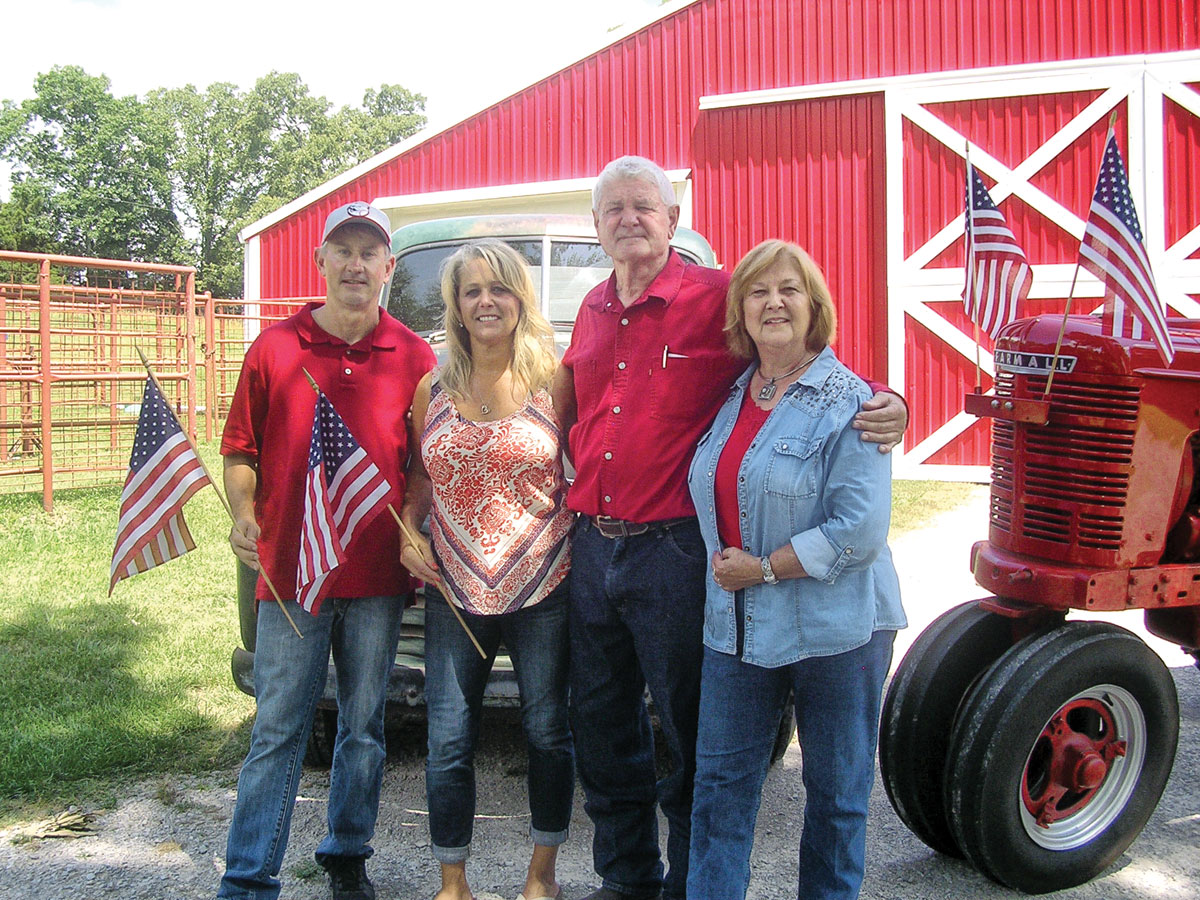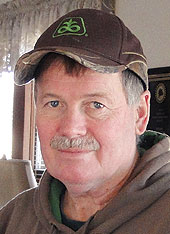A visit to Bernie and Mary Alice Wiesner’s farm in Baxter County, Ark., reveals two insights: they are proud of their cattle farm operation and of their ancestral heritage.
Bernie’s earliest ancestors were Germans who migrated to Russia in the 1760s at the invitation of Catherine the Great and settled along the Volga River as farmers. They became known as the Volga Germans.
Word of good farming opportunities in America filtered back to Russia in the 1870s the first wave of Wiesners ancestors migrated to Ellis County, Kan., where they were wheat farmers, gardeners, cattleman and carpenters.
Mary Alice is of Irish decent. Her great grandmother was orphaned at the age of 3, put on a Union Pacific Railroad orphan train and was picked off the train by a Victoria, Kan., family. She married at the age of 16 and raised 17 children.
Those strong family roots are still evident today.
The Wiesners operate Wiesner Ranch, a 167-acre registered Angus cattle farm south of Mountain Home, Ark.
The Wiesners, have called Baxter County, Ark., home since the mid-1980s when they moved from Ellis County, Kan., due to Bernie’s job. They still own a farm in Ellis County, which is in CRP and the pasture land is rented out.
The Angus herd consists of approximately 40 head. While the herd is small in number, that’s OK with the Wiesners.
“We market most of our bulls through private treaty sales,” Bernie said. “We do sell through consignment occasionally, but we prefer to work one on one with our customers.”
The reputation of Wiesner Ranch cattle has grown, thanks to a repeat customer base and a strong word of mouth network. They are continually looking for improvement in their cow herd through artificial insemination. Bulls are carefully selected based on their EPDs. Calving ease is another trait they consider along with docility, growth, and maternal traits. Bottom line, its quality over quantity. Forage is another area Bernie and Mary Alice want to improve. Their goal is to feed hay, when snow covers the grass, and stock piling the grass by cutting it to 6 inches and fertilizing in August. No-till wheat and rye planted into the Bermuda fields for winter grazing is also being considered. To minimize erosion, the ranch feeds small square hay bales in different areas of the farm, installed heavy use areas around water and feed troughs, fenced off the ponds, and implemented rotational grazing.
“Conservation is a big priority with us,” said Mary Alice. “We work closely with our NRCS office to insure we maximize the farm’s potential. They (NRCS) has also help us with some energy saving practices, which are working very well.”
Both of the Wiesner’s children, Troy and Kim, are grown and their families maintain a close working relationship with their parents. They provide a good injection of farm labor when they visit the ranch. Troy and Kim were both active in showing and judging livestock while growing up while in 4-H and FFA.
The Wiesners are active in a number of local, state and national beef associations, church and community organizations. But there are a couple of activities that are a little out of the ordinary. Bernie has his own collection of antique tractors, including a 1943 International Harvester H and a 1951 John Deere G tractor. He has parade wagons to match the tractors and they use them in local parades to promote various causes they are associated with.
They also are active on the Pedal Tractor Pull Circuit. Bernie built the tractor and the sled. Using donated funds to purchase trophies and prizes, the Wiesners have participated in several events and have had as many as 70 kids participate.
Strong ancestral heritage, strong family values, active community participation, and an excellent registered Angus cattle operation all earned the Wiesners the honor of being Baxter County’s 2017 Farm Family of the Year.







